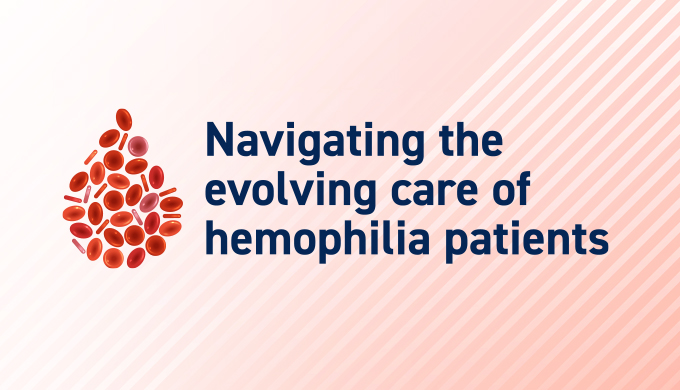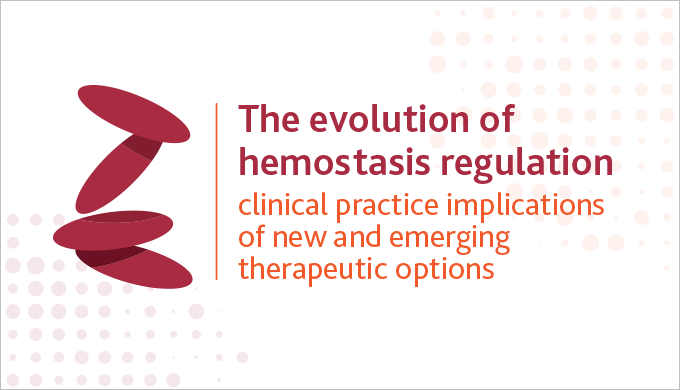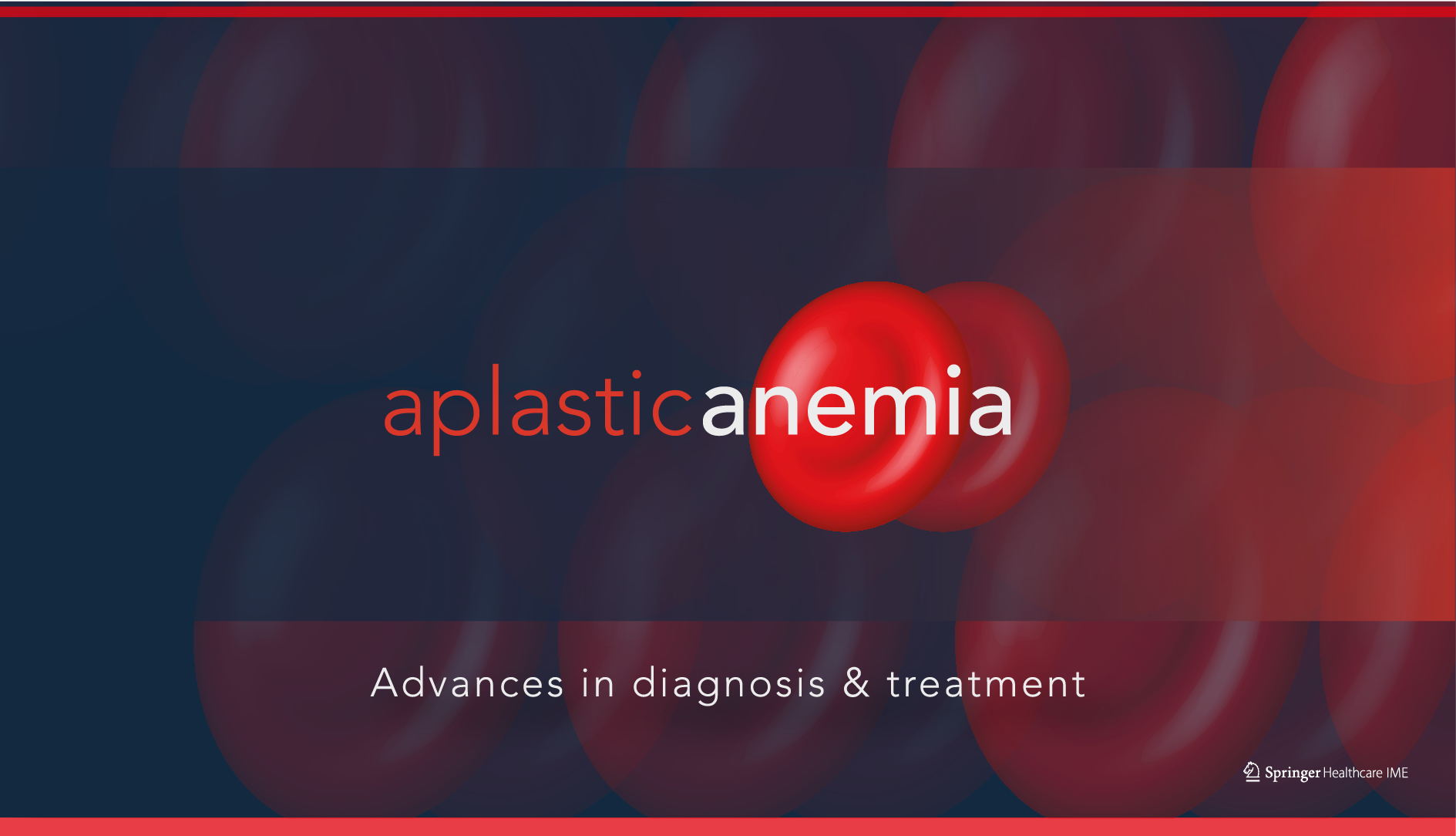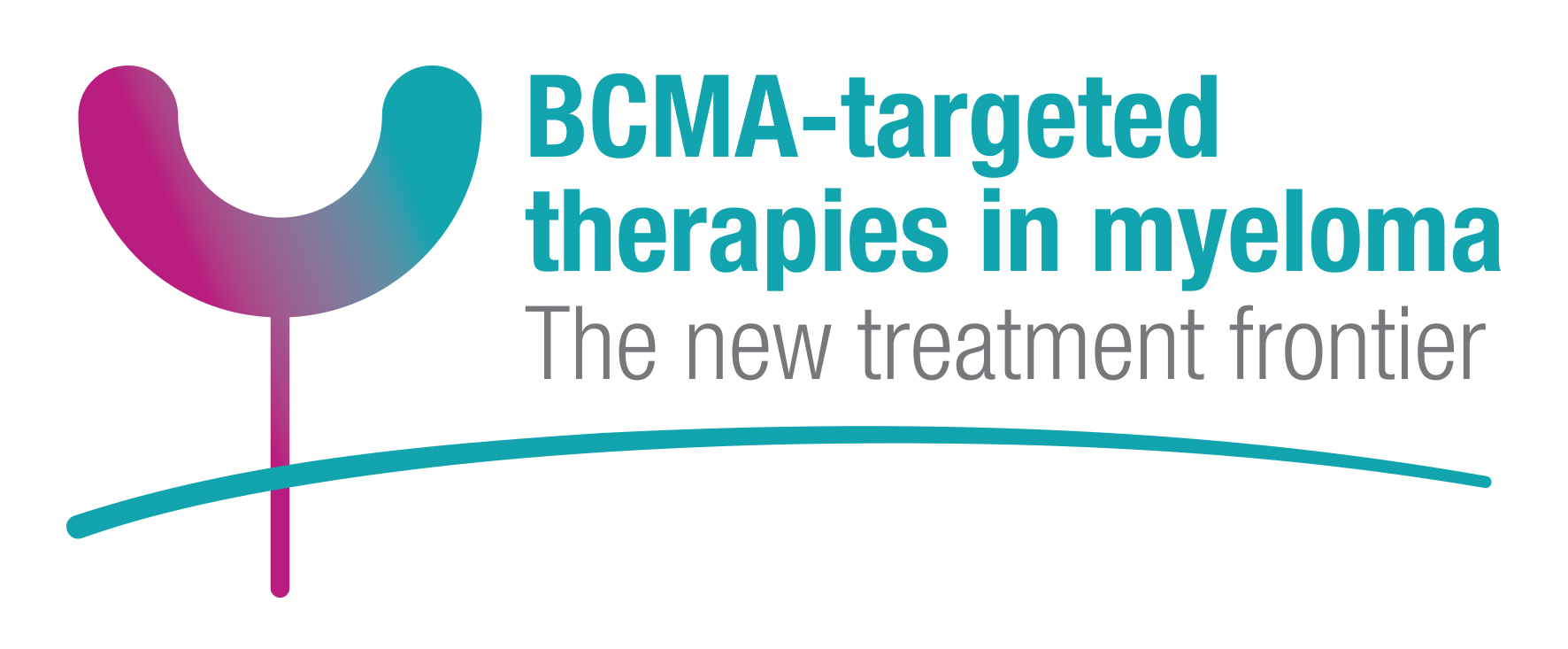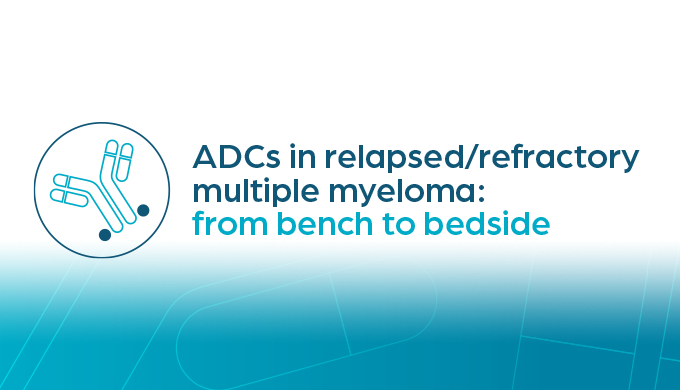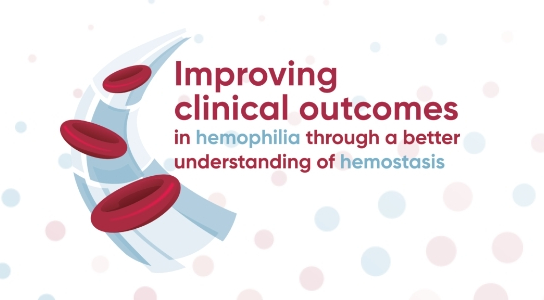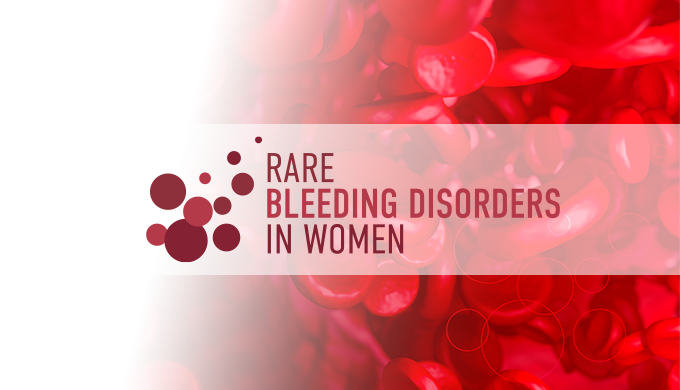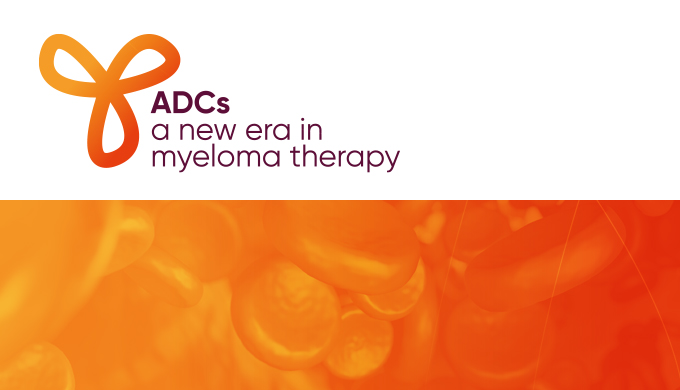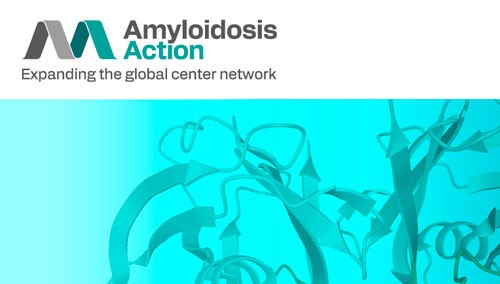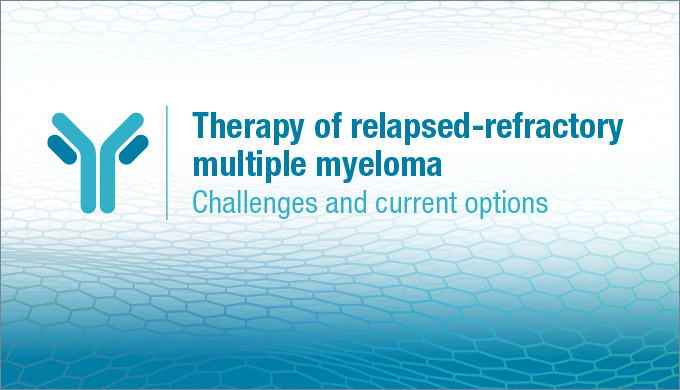The evolution of hemostasis regulation: Clinical practice implications of new and emerging therapeutic options
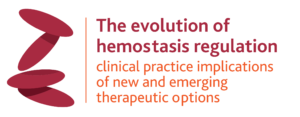 Publishing date: 1st Feb 2021
Publishing date: 1st Feb 2021
Dr Pratima Chowdary invites you to watch these three expert-to-expert video interviews looking at hemostasis and new emerging therapeutic options involved in hemostasis regulation.
- In the first expert interview, Dr Alan Mast discusses the basis of the hemostatic system and the processes involved in order to achieve tight hemostasis regulation.
- In the second interview, Dr Guy Young talks about new and emerging therapeutic options involved in hemostasis regulation.
- In the third interview, Dr Maria Elisa Mancuso explains how we can translate the research data behind these novel treatment options into clinical practice outcomes.
Each interview has a duration of 20 minutes. This activity is accredited by North American Center for Continuing Medical Education (NACCME). To claim your credits, please complete the evaluation form after watching the interviews (see below for more information about accreditation).
Interviews
1. Pratima Chowdary with Alan Mast
2. Pratima Chowdary with Guy Young
3. Pratima Chowdary with Maria Elisa Mancuso
Faculty and disclosures
 Pratima Chowdary
Pratima Chowdary
Royal Free London NHS Foundation Trust, London, UK
Professor Pratima Chowdary is the Centre Director for the Katharine Dormandy Haemophilia & Thrombosis Centre, Royal Free Hospital and Professor of Hemophilia and Hemostasis at University College of London (UCL). She is also the Clinical Lead for the Specialist Coagulation Laboratory in north London and serves as co-director for the National Haemophilia Database, run by United Kingdom Haemophilia Centre Doctors Organisation (UKHCDO).
She leads the multidisciplinary team for the care of patients with hemophilia and related bleeding disorders. Professor Chowdary’s primary research interests include personalized management of hemophilia, novel therapies in hemophilia including gene therapy, outcome assessments, hemophilic arthropathy and acquired coagulopathy.
She is active in interventional clinical trials in hemophilia spanning extended half-life products, pro‑coagulants and gene therapy. She holds numerous investigator-initiated grants and is the coordinating investigator for the United Kingdom Extended Half-Life (UK EHL) outcome registry.
She is also the chair of the UKHCDO working party on musculoskeletal issues in patients with hemophilia and is member of various steering committees. She has authored several peer-reviewed publications and textbook chapters and is a member of numerous professional societies including the International Society on Thrombosis and Haemostasis, British Society of Haemostasis and Thrombosis, European Association of Allied Bleeding disorders and the World Federation of Haemophilia.
Disclosures
Advisory boards for Bayer, Takeda, Biogen Idec, CSL Behring, Chugai, Freeline, NovoNordisk , Pfizer, Roche, Sanofi, Spark and Sobi ; grants from Bayer, CSL Behring, Freeline, Novo Nordisk, Pfizer, Takeda and SOBI.
 Alan Mast
Alan Mast
Versiti Blood Research Institute, Wisconsin, USA
Senior Investigator Alan Mast, M.D., Ph.D., was honored recently by the American Heart Association’s Council on Arteriosclerosis, Thrombosis and Vascular Biology (ATVB) for his work to improve outcomes for patients who develop blood clots with atherosclerosis. As the recipient of the 2015 Jeffrey M. Hoeg ATVB Award for Basic Science and Clinical Research, Dr Mast is recognized for his work to further understanding of the biochemistry of blood clotting related to atherosclerosis, which may lead to the development of new treatment strategies for its prevention.
Dr Mast’s research focuses on the function of an anticoagulant protein that prevents blood clots called Tissue Factor Pathway Inhibitors (TFPI). Dr Mast, along with other scientists in his laboratory, have identified a previously unrecognized function of TFPI that anticoagulates blood. It does this by blocking a step that occurs very early in the formation of a blood clot. This process appears to be mediated by forms of TFPI produced by platelets, which are important cells that produce the blood clots in patients with atherosclerosis.
According to Tom Abshire, M.D., chief medical officer at Blood Center, “Dr. Mast’s lifelong dedication to the reasons underlying blood clotting sets him apart as a leader whose basic scientific discoveries may reduce or even prevent occurences of heart attack and stroke in patients who suffer from atherosclerosis.”
Dr Mast’s important work is providing hope for the millions of people who are living with this dangerous disease.
Disclosures
Novo Nordisk research grant funding, Novo Nordisk honoraria.
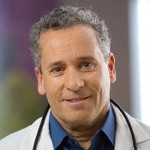 Guy Young
Guy Young
Children’s Hospital Los Angeles, Los Angeles, CA, USA
Guy Young, MD, received his medical degree from the State University of New York at Stony Brook School of Medicine in Stony Brook, New York. He completed a residency in pediatrics at Schneider Children’s Hospital at Long Island Jewish Medical Center, Albert Einstein College of Medicine in New York, and a fellowship in pediatric hematology/oncology at Children’s National Medical Center, George Washington University School of Medicine in Washington, D.C.
Dr. Young is the Director of the Hemostasis and Thrombosis Center at Children’s Hospital Los Angeles and an Associate Professor of Pediatrics at the University of Southern California’s Keck School of Medicine.
His current research activities encompass clinical trials in hemophilia, the use of novel anticoagulants in children, and the development of the global hemostasis assays to monitor the effects of medications used to treat bleeding in hemophilia.
Dr. Young has published many journal articles, abstracts, and textbook chapters and has delivered lectures, workshops, and presentations at national and international meetings. He is a current Board member and past chair of the program committee for the American Society of Pediatric Hematology/Oncology, and also a past chair of the program committee for the Hemophilia and Thrombosis Research Society. He is the current chair of the Scientific and Standardization Committee on Factor VIII, Factor IX, and Rare Bleeding Disorders of the International Society on Thrombosis and Haemostasis and also serves on the Scientific Subcommittee on Hemostasis for the American Society of Hematology. He has been awarded the National Hemophilia Foundation Physician of the Year Award in 2013.
Disclosures
BioMarine, Genentech, Roche, Novo Nordisk, Spark, Sanofi, Takeda, Pfizer, UniQure.
 Maria Elisa Mancuso
Maria Elisa Mancuso
Center of Thrombosis and Hemorrhagic Diseases of Humanitas Clinical and Research Center, Milan, Italy
Maria Elisa Mancuso (MD, PHD) is an Hematologist and works as a Senior Hematology Consultant at the Center for Thrombosis and Hemorrhagic Diseases of Humaitas Clinical and Research Center – IRCCS in Rozzano, Milan, Italy. Maria obtained a post-degree in Clinical and Experimental Hematology and a PhD in Clinical Methodology. Maria is involved in clinical research and has published several original articles in peer-reviewed journals as Blood, Journal of Thrombosis and Haemostasis, Haematologica, Thrombosis and Haemostasis, British Journal of Haematology and Haemophilia. Maria is a reviewer for several peer-reviewed journals and a member of the Editorial Board of JTH. Maria is a member of several Scientific and Standardization Subcommittees of ISTH on FVIII, FIX and rare bleeding disorders. Maria has been involved as a principal and co-investigator in several clinical trials, and Maria takes care of both children and adults with haemophilia, with a specific interest in inhibitors, prophylaxis, novel therapies and chronic hepatitis C.
Disclosures
Consultant/advisor/speaker: Bayer, CSL Behring, Novo Nordisk, Roche, Pfizer, Sobi, Octapharma, Catalyst, Kedrion, Grifols, Biomarin, and Takeda.
Learning objectives
After watching the video interviews, learners will be able to:
- Understand the physiological basis of the hemostatic system, and discuss both cell-based and cascade models of coagulation.
- Identify new and emerging therapeutic options in phase 3 for hemophilia and describe their mode of action and physiological role in hemostasis.
- Comprehend the complexity of balancing the hemostatic system, how clinicians understand and mitigate risk, and what happens with hemostasis if we disturb/re-balance the system with new therapeutic options.
- Discuss if and how treatment with non-factor therapies can be used, based on patient characteristics.
- Interpret how the mechanism of action of new therapeutic options impacts the efficacy and safety results in clinical practice, and compare the safety outcomes of new therapies with those generally used in hemophilia patients.
Accreditation
In support of improving patient care, this activity has been planned and implemented by North American Center for Continuing Medical Education (NACCME) and Springer Healthcare IME.
NACCME is jointly accredited by the Accreditation Council for Continuing Medical Education (ACCME), the Accreditation Council for Pharmacy Education (ACPE), and the American Nurses Credentialing Center (ANCC), to provide continuing education for the healthcare team.
NACCME designates AMA PRA Category 1 Credit™ for the following activities:
- Completion of each expert interview: 0.25 AMA PRA Category 1 Credit™
- Completion of all expert interviews: 0.75 AMA PRA Category 1 Credit™
Planning Committee
In addition to the expert faculty, NACCME and Springer Healthcare IME planners and staff include Greaton Sellers, Kamran Ahmad, James Hutton, Alba Ruzafa and Marie Le Solliec. The Planning Committee have no financial relationships to disclose.
Educational grant
This program is made possible thanks to an independent educational grant from Novo Nordisk Health Care AG and Pfizer.
MEET THE TEAM

James Hutton
Senior Project Director
The evolution of hemostasis regulation: Clinical practice implications of new and emerging therapeutic options
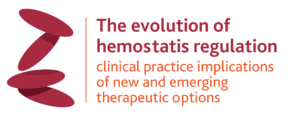 Dr Pratima Chowdary invites you to watch these three expert-to-expert video interviews looking at hemostasis and new emerging therapeutic options involved in hemostasis regulation.
Dr Pratima Chowdary invites you to watch these three expert-to-expert video interviews looking at hemostasis and new emerging therapeutic options involved in hemostasis regulation.
- In the first expert interview, Dr Alan Mast discusses the basis of the hemostatic system and the processes involved in order to achieve a tight hemostasis regulation.
- In the second interview, Dr Guy Young talks about new and emerging therapeutic options involved in hemostasis regulation.
- In the third interview, Dr Maria Elisa Mancuso explains how we can translate the research data behind these novel treatment options in clinical practice outcomes.
Each interview has a duration of 20 minutes. This activity is accredited by North American Center for Continuing Medical Education (NACCME). To claim your credits, select the box in the evaluation form at the end of each interview (see below for more information about accreditation).
Interviews
1. Pratima Chowdary with Alan Mast
2. Pratima Chowdary with Guy Young
3. Pratima Chowdary with Maria Elisa Mancuso
Faculty and disclosures
 Pratima Chowdary
Pratima Chowdary
Royal Free London NHS Foundation Trust, London, UK
Professor Pratima Chowdary is the Centre Director for the Katharine Dormandy Haemophilia & Thrombosis Centre, Royal Free Hospital and Professor of Hemophilia and Hemostasis at University College of London (UCL). She is also the Clinical Lead for the Specialist Coagulation Laboratory in north London and serves as co-director for the National Haemophilia Database, run by United Kingdom Haemophilia Centre Doctors Organisation (UKHCDO).
She leads the multidisciplinary team for the care of patients with hemophilia and related bleeding disorders. Professor Chowdary’s primary research interests include personalized management of hemophilia, novel therapies in hemophilia including gene therapy, outcome assessments, hemophilic arthropathy and acquired coagulopathy.
She is active in interventional clinical trials in hemophilia spanning extended half-life products, pro‑coagulants and gene therapy. She holds numerous investigator-initiated grants and is the coordinating investigator for the United Kingdom Extended Half-Life (UK EHL) outcome registry.
She is also the chair of the UKHCDO working party on musculoskeletal issues in patients with hemophilia and is member of various steering committees. She has authored several peer-reviewed publications and textbook chapters and is a member of numerous professional societies including the International Society on Thrombosis and Haemostasis, British Society of Haemostasis and Thrombosis, European Association of Allied Bleeding disorders and the World Federation of Haemophilia.
Disclosures
Advisory boards for Bayer, Takeda, Biogen Idec, CSL Behring, Chugai, Freeline, NovoNordisk , Pfizer, Roche, Sanofi, Spark and Sobi ; grants from Bayer, CSL Behring, Freeline, Novo Nordisk, Pfizer, Takeda and SOBI.
 Alan Mast
Alan Mast
Versiti Blood Research Institute, Wisconsi, USA Versiti Blood Research Institute, Wisconsi, USA
Senior Investigator Alan Mast, M.D., Ph.D., was honored recently by the American Heart Association’s Council on Arteriosclerosis, Thrombosis and Vascular Biology (ATVB) for his work to improve outcomes for patients who develop blood clots with atherosclerosis. As the recipient of the 2015 Jeffrey M. Hoeg ATVB Award for Basic Science and Clinical Research, Dr Mast is recognized for his work to further understanding of the biochemistry of blood clotting related to atherosclerosis, which may lead to the development of new treatment strategies for its prevention.
Dr Mast’s research focuses on the function of an anticoagulant protein that prevents blood clots called Tissue Factor Pathway Inhibitors (TFPI). Dr Mast, along with other scientists in his laboratory, have identified a previously unrecognized function of TFPI that anticoagulates blood. It does this by blocking a step that occurs very early in the formation of a blood clot. This process appears to be mediated by forms of TFPI produced by platelets, which are important cells that produce the blood clots in patients with atherosclerosis.
According to Tom Abshire, M.D., chief medical officer at Blood Center, “Dr. Mast’s lifelong dedication to the reasons underlying blood clotting sets him apart as a leader whose basic scientific discoveries may reduce or even prevent occurences of heart attack and stroke in patients who suffer from atherosclerosis.”
Dr Mast’s important work is providing hope for the millions of people who are living with this dangerous disease.
Disclosures
Novo Nordisk research grant funding, Novo Nordisk honoraria.
 Guy Young
Guy Young
Children’s Hospital Los Angeles, Los Angeles, CA, USA
Guy Young, MD, received his medical degree from the State University of New York at Stony Brook School of Medicine in Stony Brook, New York. He completed a residency in pediatrics at Schneider Children’s Hospital at Long Island Jewish Medical Center, Albert Einstein College of Medicine in New York, and a fellowship in pediatric hematology/oncology at Children’s National Medical Center, George Washington University School of Medicine in Washington, D.C.
Dr. Young is the Director of the Hemostasis and Thrombosis Center at Children’s Hospital Los Angeles and an Associate Professor of Pediatrics at the University of Southern California’s Keck School of Medicine.
His current research activities encompass clinical trials in hemophilia, the use of novel anticoagulants in children, and the development of the global hemostasis assays to monitor the effects of medications used to treat bleeding in hemophilia.
Dr. Young has published many journal articles, abstracts, and textbook chapters and has delivered lectures, workshops, and presentations at national and international meetings. He is a current Board member and past chair of the program committee for the American Society of Pediatric Hematology/Oncology, and also a past chair of the program committee for the Hemophilia and Thrombosis Research Society. He is the current chair of the Scientific and Standardization Committee on Factor VIII, Factor IX, and Rare Bleeding Disorders of the International Society on Thrombosis and Haemostasis and also serves on the Scientific Subcommittee on Hemostasis for the American Society of Hematology. He has been awarded the National Hemophilia Foundation Physician of the Year Award in 2013.
Disclosures
BioMarine, Genentech, Roche, Novo Nordisk, Spark, Sanofi, Takeda, Pfizer, UniQure.
 Maria Elisa Mancuso
Maria Elisa Mancuso
Center of Thrombosis and Hemorrhagic Diseases of Humanitas Clinical and Research Center, Milan, Italy
Maria Elisa Mancuso (MD, PHD) is an Hematologist and works as a Senior Hematology Consultant at the Center for Thrombosis and Hemorrhagic Diseases of Humaitas Clinical and Research Center – IRCCS in Rozzano, Milan, Italy. Maria obtained a post-degree in Clinical and Experimental Hematology and a PhD in Clinical Methodology. Maria is involved in clinical research and has published several original articles in peer-reviewed journals as Blood, Journal of Thrombosis and Haemostasis, Haematologica, Thrombosis and Haemostasis, British Journal of Haematology and Haemophilia. Maria is a reviewer for several peer-reviewed journals and a member of the Editorial Board of JTH. Maria is a member of several Scientific and Standardization Subcommittees of ISTH on FVIII, FIX and rare bleeding disorders. Maria has been involved as a principal and co-investigator in several clinical trials, and Maria takes care of both children and adults with haemophilia, with a specific interest in inhibitors, prophylaxis, novel therapies and chronic hepatitis C.
Disclosures
Consultant/advisor/speaker: Bayer, CSL Behring, Novo Nordisk, Roche, Pfizer, Sobi, Octapharma, Catalyst, Kedrion, Grifols, Biomarin, and Takeda.
Learning objectives
After watching the video interviews, learners will be able to:
- Understand the physiologic basis of the hemostasis system, and discuss both cell-based and cascade models of coagulation.
- Identify new and emerging therapeutic options in phase 3 for hemophilia and describe their mode of action and physiological role in hemostasis (i.e. APC, AT and special focus on anti-TFPIs).
- Debate the complexity of balancing the system, how to understand and mitigate risk, what happens with hemostasis if the system is disturbed/re-balanced with antiTFPI, antiAT.
- Determine, based on patient case (age, comorbidities, etc), if and how patients can be treated with non-factor therapies.
- Interpret how the mechanism of action of the new therapeutic targets impacts the efficacy and safety outcomes in clinical practice; and describe safety outcomes of new therapies versus to general hemophilia population.
Accreditation
In support of improving patient care, this activity has been planned and implemented by North American Center for Continuing Medical Education (NACCME) and Springer Healthcare IME.
NACCME is jointly accredited by the Accreditation Council for Continuing Medical Education (ACCME), the Accreditation Council for Pharmacy Education (ACPE), and the American Nurses Credentialing Center (ANCC), to provide continuing education for the healthcare team.
NACCME designates AMA PRA Category 1 Credit™ for the following activities:
- Completion of each expert interview: AMA PRA Category 0.25 Credits™
- Completion of all expert interviews: AMA PRA Category 1 Credit™
Educational grant
This programme is made possible thanks to an independent educational grant from Novo Nordisk A/S.
MEET THE TEAM

Elsbeth Headley
Global Director





